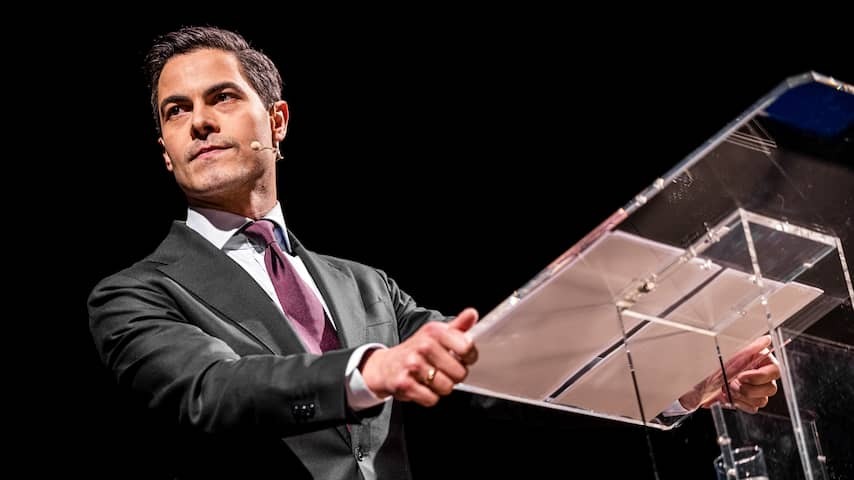
D66 is sharpening its position on migration in the run-up to the elections. The current system is broken, according to D66 leader Rob Jetten, and so he is advocating for the ‘Canadian model’, where asylum applications are processed outside the EU.
Jetten says this in an interview with the AD. “The current migration system is broken. We need to move from migration that happens to us to migration that we control ourselves. And not just for people in the Netherlands who are concerned about a too high influx.”
That is why his party is making a shift in the area of migration in the run-up to the elections in October. Jetten is looking to the “Canadian model” for this. In this model, asylum applications are processed outside the European Union or refugees are allowed to come here by invitation.
Bringing refugees to the Netherlands by invitation already happens through the UN refugee agency UNHCR. In this way, a maximum of five hundred recognized refugees are brought to the Netherlands. That should also play a very important role in the future, although the party cannot yet name numbers.
With the Canadian model, Jetten hopes that people who receive an asylum permit will be fairly distributed across Europe. That also saves life-threatening crossings over the Mediterranean Sea or other smuggling routes.
These measures are not entirely new. In the EU migration pact, which will come into effect from next year, there is also a rule that asylum requests are processed at the external borders of Europe.
D66 wants to look at amending treaties
According to Jetten, it is also important to dust off the current international treaties. D66 surprisingly voted against a motion last week calling for those treaties to be examined.
BBB MP Claudia van Zanten and NSC MP Diederik Boomsma specifically requested in that motion a “exploration of treaties that may need to be modernized or revised”. The motion received a majority despite the missing approval of D66.
D66 now says that it wanted to follow “its own planning and process” and therefore did not agree to that motion. According to D66, the intention behind this motion was mainly to reduce the influx, while as far as that party is concerned, it is important to amend the treaties for a fair policy.
Multiple cabinets have fallen over asylum, including cabinet with D66
Jetten also emphasizes in the interview that there has been “talk about better asylum rules for years, but with little result”. Both the Schoof cabinet and the Rutte IV cabinet fell over stricter asylum measures. In the Rutte IV cabinet, it was D66 who, like CU, did not want to go along with the stricter asylum rules desired by the VVD.
The D66 leader now emphasizes that the stricter asylum approach should come from the middle, because “left and right are digging themselves in and so we are not making any progress”.
At the same time, the plans that D66 now envisions, such as amending those treaties, also take a lot of time. In the meantime, something must also happen, Jetten believes. For example, nuisance-causing and disadvantaged asylum seekers should be placed in closed reception centers as far as he is concerned. “You are coming to a country with liberal values. If you do not respect them, you may also lose rights.”